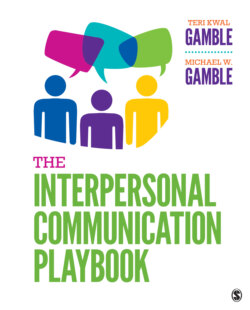Читать книгу The Interpersonal Communication Playbook - Teri Kwal Gamble - Страница 123
На сайте Литреса книга снята с продажи.
Attribution Errors
ОглавлениеA common error in making attributions is that of assuming that the primary motivation for behavior is in the person, not in the person’s situation, a tendency known as the fundamental attribution error. When, for example, a friend disappoints us by failing to arrive on time for a party, we make a fundamental attribution error if we conclude that the friend is inconsiderate, rather than believe that external factors interfered with his or her ability to attend. The fundamental attribution error causes us to overemphasize internal factors or personality traits, and to de-emphasize or discount the role played by the situation or factors external to the person.32
Things change dramatically, however, when we provide reasons for our own behavior. In offering reasons for why we behave as we do, we overemphasize external factors and downplay internal ones. This tendency, known as the self-serving bias, functions as a barrier to accurate perception, while simultaneously helping to raise our own self-esteem. We take credit for the positive and attribute the negative to factors beyond our control.
Another perceptual barrier is over-attribution—the attributing of everything an individual does to a single or a few specific characteristics. For example, we may ascribe a person’s alcohol use, preference for certain kinds of friends, and lack of interest in close relationships to the fact that she or he was sexually abused when young.
When it comes to human beings, accounting for behavior can be complex. To understand our own behavior and that of others, we need to do our best to make accurate, reasoned attributions rather than excuse or blame ourselves or other people based on habitual attribution biases.
